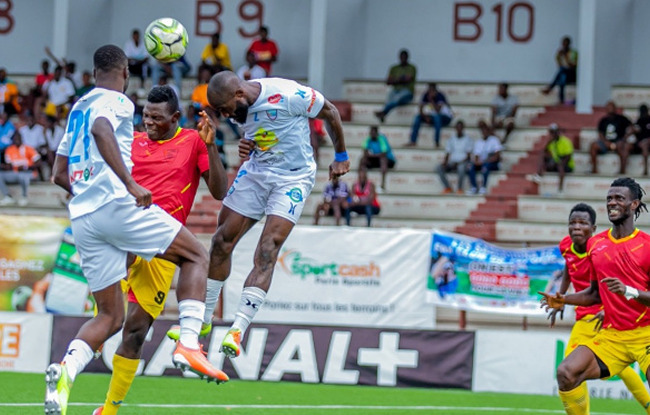We use cookies to help you navigate efficiently and perform certain functions. You will find detailed information about all cookies under each consent category below.
The cookies that are categorized as "Necessary" are stored on your browser as they are essential for enabling the basic functionalities of the site. ...
Necessary cookies are required to enable the basic features of this site, such as providing secure log-in or adjusting your consent preferences. These cookies do not store any personally identifiable data.
Functional cookies help perform certain functionalities like sharing the content of the website on social media platforms, collecting feedback, and other third-party features.
Analytical cookies are used to understand how visitors interact with the website. These cookies help provide information on metrics such as the number of visitors, bounce rate, traffic source, etc.
Performance cookies are used to understand and analyze the key performance indexes of the website which helps in delivering a better user experience for the visitors.
Advertisement cookies are used to provide visitors with customized advertisements based on the pages you visited previously and to analyze the effectiveness of the ad campaigns.

Urged to leave Ligue 1 for a better financial challenge, several players have already given in to the siren calls of foreign clubs.Others are about to follow suit. The Ligue 1 season in Côte d'Ivoire ended with Asec Mimosas winning the national cup.
Destination Africa and Europe
Kramo Aubin was one of the very first major Ligue 1 players to sign for Tanzanian side Simba FC. The Ivorian, scorer of 15 goals in all competitions and 10 assists in just over 50 matches, has joined the Red-Whites for two seasons without any compensation. "My contract is over. Asec didn't take any money from Simba SC before releasing me, because the chairman offered me to renew, and the final decision was mine. I opted for Simba SC because I was free," confided the 27-year-old striker after his signing.
Kramo chose East Africa, as did another of his Ligue 1 teammates, Yao Attohoula Kouassi. The twirling Ivorian international right-back (2 caps) is practically a Young Africans player. Only details remain to be discussed before he dons Yanga's tunic. For the Mimos, the bleeding in Ligue 1 could continue. Coulibaly Souleymane, the central defender who will be the undisputed starter at the CHAN 2022, is rumored to be joining an Algerian club, whose name has not been revealed, while Zoungrana Mohamed, who has also been sparkling in Algeria, is coveted by an Egyptian club (Ahly or Cleopatra).
Another international, the captain of LYS Sassandra, has opted for Central Africa. Andé Cyrille Habib has opted for AS Vita. The terms and duration of the contract were not specified by his now ex-president, Dia Mamadou. While some players have opted for Africa, others have responded positively to the siren calls of Europe. Patrick Ouotro, striker for LYS Sassandra and Côte d'Ivoire at the CHAN 2022 in Algeria, has signed a long-term contract with Strasbourg (France).
The 17-year-old centre-forward (25 matches, 8 goals) is due to come of age in a few weeks' time to join the squad now coached by Patrick Viera. Tongues have been wagging about this talent drain."All clubs (in Ligue 1) have to buy and sell at the mercato.We're no exception.It's true that it's a promise of Ivorian soccer, but what can you do when faced with huge offers and a suitable sporting project?" confides President Dia, who points out that "two of the club's youngsters have also signed for French Ligue 1", without revealing their names or those of the host clubs. Like Ouotro, former AS Denguelé Odienné central defender Ibrahim Doumbia Khalil (22) has opted for Europe.He has signed for AB Copenhagen in the Danish Ligue 2 (D2). The list is not exhaustive, but what's driving local footballers so hard?
The reasons for these departures
All footballers dream of a better life. More than sporting, the choices of local players are guided by financial considerations.Rigo Gervais, former coach of Stella Club d'Adjamé, doesn't blame anyone. "It's not for nothing that players are leaving the Ivorian Ligue 1 in a hurry.A country like Tanzania attracts so many players from our league because it pays well.Last year, Tapé Edinho and Kipré Zunon left for Tanzania on a massive scale, and this will continue to be the case during the mercato. The fact is that the average salary for a footballer in Côte d'Ivoire is 243 euros, while the lowest in Tanzania is 4573 euros. And that's only the first step for a foreign player. After that, he can find himself in his second season at 7621 euros. You can see the difference.Ki Aziz, the former Asec player, is in that range at the moment, and he could soon reach double that", he explains.
The superpower of clubs in this part of Africa has its roots in colossal investments. "Tanzanian soccer has reached a new level today.The TV rights are enormous and the championship is seen in India, which is becoming the world's biggest market.What's more, several Hindus have become involved in financing soccer, while others have become naturalized citizens and are injecting a lot of money from their companies into the king of sports.A club like Azam owns chain stores and the broadcasting rights to the championship. They're light years ahead of what's going on in West Africa, where Horoya recently ruled the roost after the glory days of Ivorian clubs Asec and Africa in the 70s and 80s," concludes the 2014 Confederation Cup finalist with Séwé Sport de San Pedro.